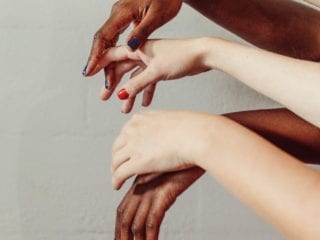In the last two months, my social media landscape shifted. Platforms previously used to share beach pictures, quarantine selfies or nights with friends and family transformed seemingly overnight into calls to justice surrounding racism in America.
Catalyzed by the deaths of George Floyd, Ahmaud Arbery and Breonna Taylor, millions of people across the nation and the world flooded the streets to protest police brutality. This triggered a subsequent outpour of support and social media activism. Suddenly, my social feed was inundated with “Black Lives Matter” messaging, and I found myself feeling overwhelmed by the 24/7 cycle of headlines and posts.
This overwhelmed sensation is called “feed fatigue.” Over-saturation of social media feeds can dilute the potency and importance of social issues. A topic that was once danced around suddenly became the center of attention and rightfully so. Yet, with every scroll, each post calling for justice and equality became one homogenous blur, leaving me feeling burnt out.
It’s been tempting to sign out of my accounts and delete the apps, but I realized I didn’t want to take the option to log out. Feed fatigue—and the subsequent urge to “log out”—is a privilege. As a white person, I can choose to log out and disconnect. I do not face oppression based on the color of my skin. Black people, however, can’t just “log out” because this is their day-to-day experience. Attempting to ignore the conversation is a privilege of people who do not face racial oppression.
I can choose to log out and disconnect. Black people can’t just “log out” because this is their day-to-day experience.
So how do I prevent feed fatigue? How do I stay engaged in the fight for justice while taking time to process and recharge? Here are few tips I’ve recently discovered to fight the feed fatigue that comes with activism in the social media age:
Take a break from screens, but not from education.
If social activism only occurs on a screen, it can become performative and ineffective. While diversifying my feed and posting information is helpful, it’s also important to turn off my phone and take time to educate myself. Instead, I turn on a documentary, pick up a piece of literature about racial injustice or donate to nonprofits that support the movement.
Just because I log out of social media for a few hours doesn’t mean my activism stops there. It takes more than posting on social media and reading others’ posts to educate myself. It also requires effort to read, listen and unlearn my indoctrinated racism and form new anti-racist habits.
It also requires effort to read, listen and unlearn my indoctrinated racism and form new anti-racist habits.
Focus on tackling one issue at a time, not the whole system.
I’m eager to tackle every single problem and injustice I see on my screen, but the reality is that trying to take on all of the world’s problems will only end in my own fatigue. This is also known as activism burnout, fatigue experienced after enthusiastically attempting to tackle social issues that leads to feeling hopeless and exhausted. It can cause a dangerous withdrawal from activism altogether.
Before you try to take on every single problem, take it one step and one problem at a time. Focus on one social justice issue and dive into it. Once you educate yourself on that particular issue, then move onto the next. If you try to take in too much information, then you’ll feel overwhelmed.
Participate in meaningful discourse.
After you have taken time to educate yourself about institutional racism and unlearn your own biases, the next step is to have conversations with people, especially those with different life experiences and backgrounds. Continuing to have those difficult conversations is a good mental practice to exercise your critical thinking.
As a white person, throughout my life, I have been able to selectively pick and choose when and how I learn about race and racism. Unlike Black people, my knowledge of racism has come through controlled environments, not out of the real-life experience of the pain of racial injustice. Educating myself means going beyond the classroom and spending time learning more and acknowledging my privilege.
As social media feeds begin to return to “normal”—as people fall back into their comfort zones—I am actively fighting against the urge to slip back into digital normalcy. Just because the content on Instagram is expiring, it doesn’t mean the movement is.
Social media is only one facet of activism, not the be-all, end-all of an entire movement. It takes a long-term commitment to re-education and unlearning bias to create lasting change.











